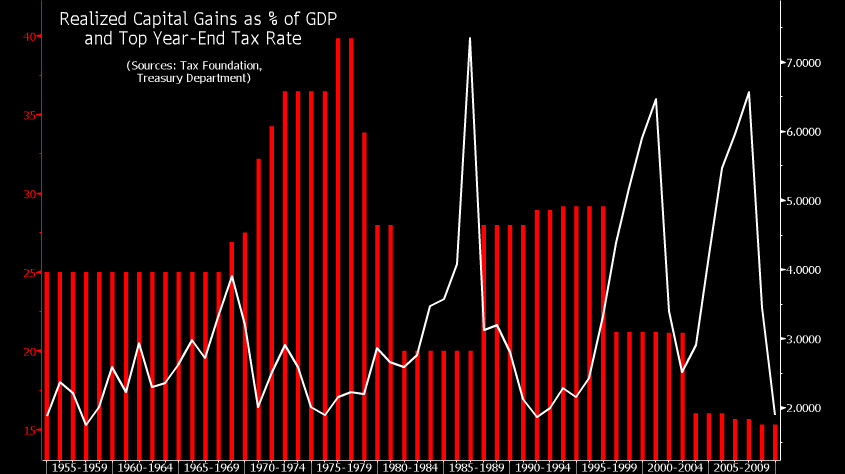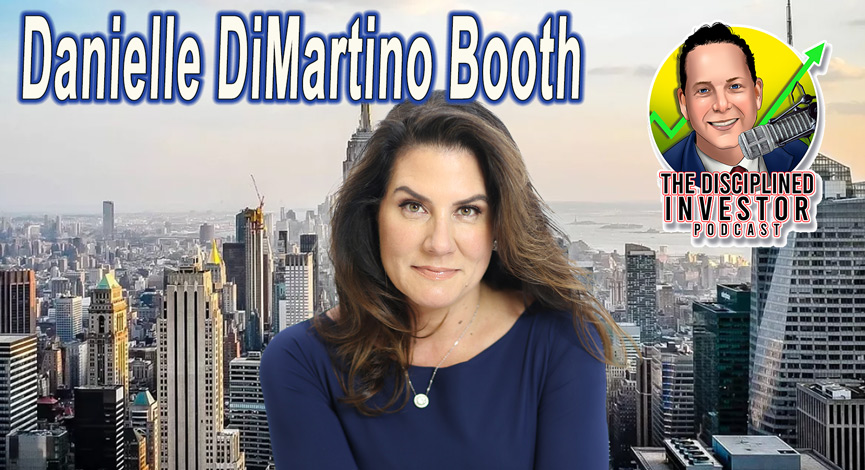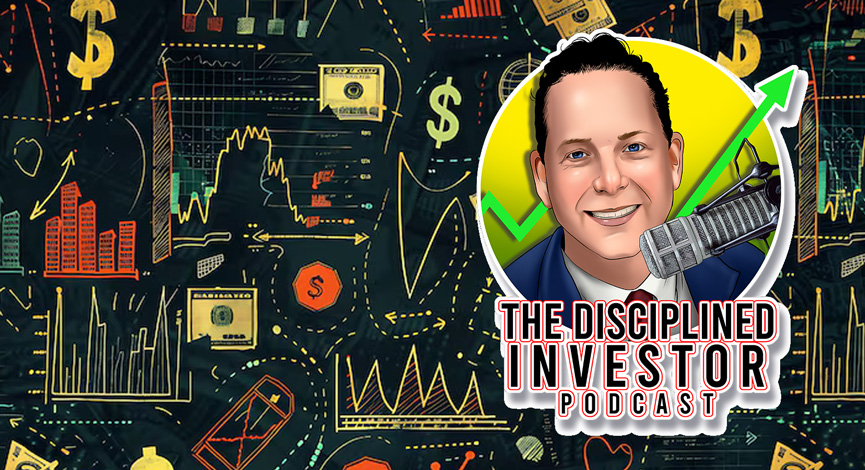Just commenting about the idea that a rise in the capital gains tax rate could be a very significant driver in pushing stock sales. Simply, this is a reaction to the idea that rolling-back the rate to the pre-Bush tax cuts could force investors to re-evaluate their positions that have run up sharply over the past couple of years. (we discussed this on this week’s TDI Podcast)
From Bloomberg’s Chart of the Day Series:
(CLICK TO ENLARGE)
Raising capital-gains taxes may trigger enough selling to drag down U.S. stocks, if history is any indication, according to Gina Martin Adams, a Wells Fargo & Co. strategist. The Bloomberg Chart of the Day shows realized long-term capital gains, triggered by selling securities owned for more than a year, as a percentage of U.S. gross domestic product from 1954 through 2009. The data was compiled by the Tax Foundation, a Washington-based research group backing a simpler tax code.
In January, the top rate on capital gains is scheduled to rise to 23.8 percent from 15 percent. The increase figures into what‘s called the fiscal cliff, a combination of higher federal taxes and spending cuts. The current rate is the lowest in more than half a century, as the chart shows. “Stock prices look vulnerable if Congress does not act” to hold down capital-gains taxes, Martin Adams wrote two days
ago in a report. She cited the reaction to higher rates that were adopted in 1969 and 1986.
Realized gains rose in both cases as many investors sold to avoid the greater tax burden, the New York-based strategist wrote. In 1986, a year before the so-called Black Monday crash in stocks, they amounted to 7.4 percent of GDP. The percentage still stands as a record.
“Rather ominously, both occurred after a period of relative stability” in rates, she wrote. The 15 percent limit has been in effect since 2003, when the rate dropped as part of a tax overhaul under President George W. Bush. The reduction is among Bush-era cuts set to expire at year-end.

















